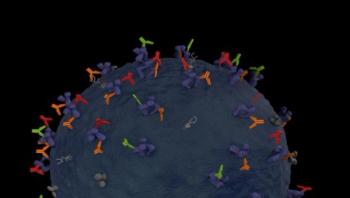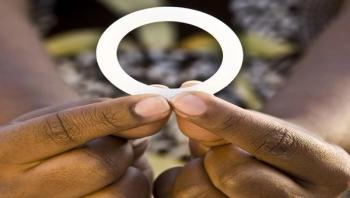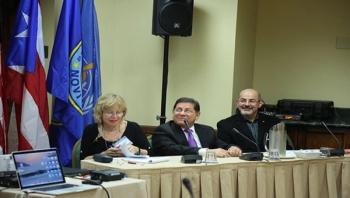
News


Bacteria in the gut of disease-bearing insects - including the mosquito which carries the Zika virus - can be used as a Trojan horse to help control the insects' population, new research at Swansea University has shown. The results showed declines in fertility of up to 100 percent and an increase of 60 percent in the mortality rate of larvae, among the insects studied.

Serious burn victims are immunocompromised and may be missing skin on parts of their body, and this makes them highly vulnerable to bacteria. Thanks to progress in intensive care, they are decreasingly likely to die from burn trauma. Death is more commonly the result of infections that can occur several months after being hospitalized. The bandages used to treat burns actually represent a real breeding ground for microbes.

Researchers hope to develop vaccines, therapeutics and new diagnostic tests for a broad range of diseases. To accomplish this, they will need to gain a much better understanding of a critical class of biological components. Known as surface membrane proteins, these vital ingredients in the disease process form a structurally and functionally diverse assemblage of enormous complexity.


As the World Health Organization (WHO) continues its work to guide the international response to Zika, the director-general, Margaret Chan, MD, has arrived in the northeast part of the country to visit the area most affected by neurological disorders suspected of being linked to the virus, including microcephaly in babies.










The research of two Montana State University microbiologists into how bacteria fend off attacks from viruses is included in a new paper published in the scientific journal Nature.

New research from the University of Southampton shows that copper can destroy MRSA spread by touching and fingertip contamination of surfaces. Frequently-touched surfaces in busy areas – such as hospitals, transport hubs and public buildings – are at high risk of community-acquired and healthcare-associated infections (HAIs) caused by methicillin-resistant Staphylococcus aureus (MRSA) and methicillin-sensitive Staphylococcus aureus (MSSA). Bacteria deposited on a surface by one person touching it, or via contaminated body fluids, can be picked up by subsequent users and spread to other surfaces, potentially causing thousands of infections worldwide. There were more than 800 cases of MRSA and almost 10,000 cases of MSSA reported by English NHS acute Trusts between April 1, 2014 and March 31, 2015.






A new methodology developed by researchers at Rice and Rutgers universities could help scientists understand how and why a biochemical network doesn't always perform as expected. To test the approach, they analyzed the stress response of bacteria that cause tuberculosis and predicted novel interactions.

A ring that continuously releases an experimental antiretroviral drug in the vagina safely provided a modest level of protection against HIV infection in women, a large clinical trial in four sub-Saharan African countries has found. The ring reduced the risk of HIV infection by 27 percent in the study population overall and by 61 percent among women ages 25 years and older, who used the ring most consistently.




